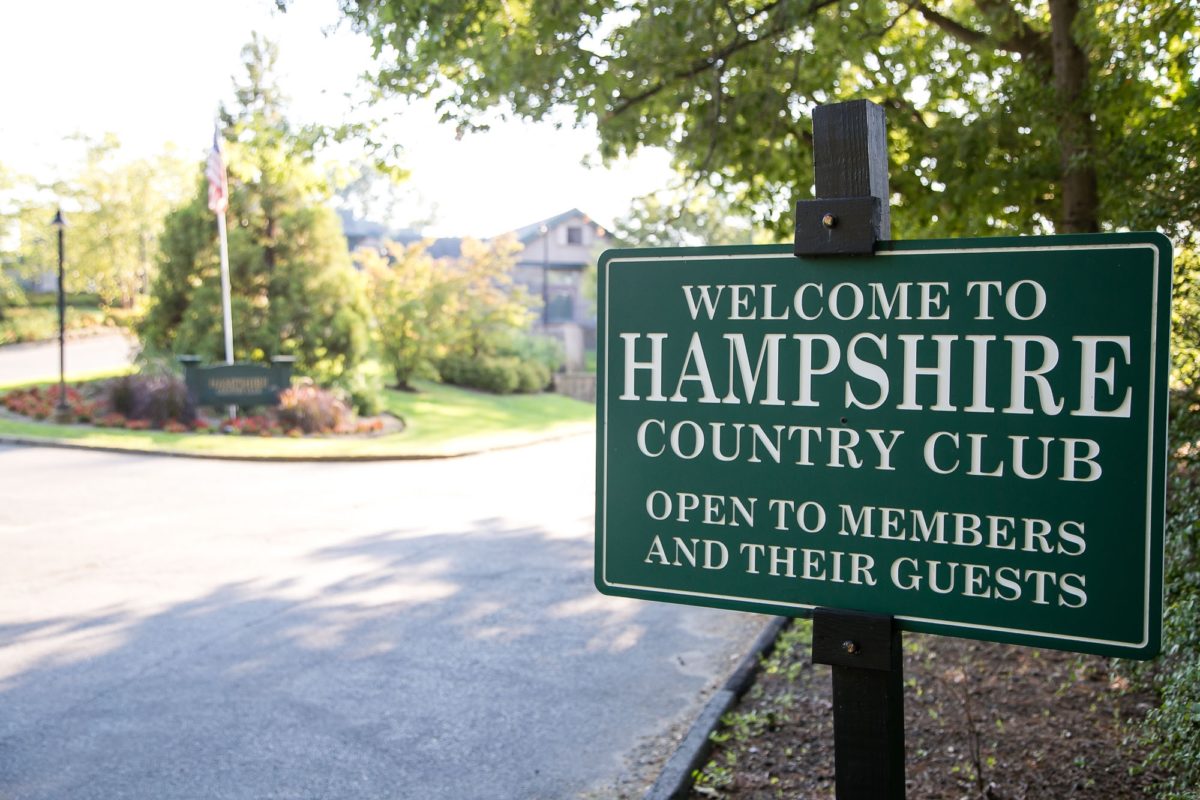Judge orders Mamaroneck to act on Hampshire CC development

The village of Mamaroneck must act now on an environmental review, a judge has ruled, on Hampshire Country Club”™s proposed Residences at Hampshire.
Westchester Supreme Court Justice Linda S. Jamieson granted a writ of mandamus March 13 to Hampshire Recreation LLC, the country club”™s developer, to compel the village planning board to accept an environmental impact statement as complete within 20 days and then issue its own findings within 30 days.
Village officials did not respond to an email request for comment on the judge”™s decision.
Hampshire Recreation has been trying to get village regulatory approvals since 2015. The country club wants to downsize to a 9-hole golf course, build 61 townhouse and 44 houses and set aside 31 acres as open space for public use.
Mamaroneck Coastal Environmental Coalition, a group of neighbors who live near the country club in the wealthy Orienta section of the village, has vigorously opposed the development.
Hampshire Recreation submitted a proposed Final Environmental Impact Statement in October 2018, as required by the State Environmental Quality Review Act. Generally, the local government is required to adopt a proposed report and then issue its own findings.
In this case, the planning board convened numerous work sessions, raised many questions and demanded more information over an 18-month period.
Hampshire Recreation revised its proposed environmental statement four times, producing a report with more than 3,000 pages last November.
The planning board, according to Hampshire Recreation, responded by stating that it wanted to hold another public comment period, even though the comment period had formally closed in May 2018.
Hampshire Recreation petitioned Westchester Supreme Court to compel the village to accept the report and issue its findings.
The village was “continually moving the goal posts,” the petition states, and was refusing the accept any version of the developer”™s environmental report.
Hampshire Recreation argued that it had addressed all significant environmental issues and that the village was manufacturing issues to delay the report.
The court had no authority “to interfere in the ongoing administrative process,” the village argued, because it was diligently working to resolve all issues.
The “remedy of mandamus” to compel a government to perform a ministerial duty, Jamieson acknowledged, has limitations. But she found that the village was attempting to be encyclopedic in its review of the proposed environmental impact statement.
The New York Court of appeals has made it clear, she said, that “not every conceivable environmental impact, mitigating measure or alternative” must be addressed before accepting the report.
Zarin & Steinmetz of White Plains represented Hampshire Recreation. Abrams Fensterman of White Plains represented the village.